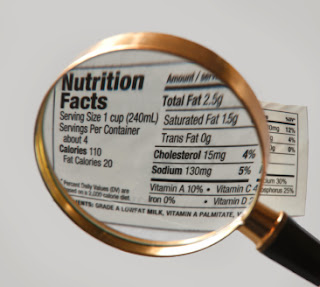Trainer Tuesdays
Welcome back to the weekly edition on Trainer Tuesdays. Make
sure to check in at our blog every Tuesday evening to learn the expertise of
our great staff.
Aside from being fantastic exercise coaches, they are also extremely
knowledgeable in many aspects of health and fitness; so, it's time that you get
to know them a little better! Each week, we will post a frequently asked, or
sometimes just a fun fitness related question followed by the answers of each
of the trainers at Fitness
Together Brecksville.
What is a Good Breakdown
of Carbohydrates, Fats and Proteins For My Diet?
The recommended dietary allowance (RDA) is 45-65 percent of
your calories should be carbohydrates. If you are active than your intake
should be closer to 65. Less active people should be closer to the 45 percent.
Remember fiber is a carbohydrate and women need at least 22 grams per day, men
need at least 28 grams per day. 10-35 percent of your calories should be from
protein according to RDA. More active people, especially those that lift
weights, should be around 35, less active people should be less than that.
Protein contains nitrogen which can be harmful to your kidneys if you exceed 35
percent. 20-35 percent of your calories should be from fat according to RDA.
Less active people can be closer to 35 percent, but less active people can not
afford to take in as many calories. Also remember there are saturated and
unsaturated fats. Unsaturated fats like oils are more healthy than saturated
fat which comes from an animal. Many animal fats contain cholesterol which you
want to limit to less than 300 mg a day. You might also see trans fats on a
food label which the RDA is less than 1 percent of your calories per day. The
RDA is the gold standard for nutritional guidelines because it is backed by a
large amount of research conducted by well educated professionals in the field
of nutrition.
What's a good breakdown of calories in your daily diet of
protein, carbohydrates and fats you ask? Here are suggestions: When its comes
to protein 20-25% of your daily calories should come from protein. For a
2,000-calorie diet, this would be about 400-500 calories from protein (100-125
g) per day. Make sure to choose lean protein such as chicken, fish, beans,
lentils, nuts, or non-fat milk. Keep in mind that some people may need a little
less or a little more depending on what they're goal is of a fit lifestyle. Now
when it comes to carbs- You have to be very careful to get the good carbs, not
bad refined ones like white bread, cookies or crackers/chips. Shoot for
45-60% of your daily calories to come from carbohydrates. An example
for a 2,000-calorie diet would be between 900-1200 calories (225 - 300g)
per day. Don't forget carbs are important! Your body needs them for energy
throughout the day. Most importantly the "Brain" needs them to
function properly. Try to ingest high fiber content because this will keep
you feeling fuller longer. Beans and legumes are also a good source of
carbohydrates. Just make sure you stay within the recommended allowance.
Lastly, but most importantly fat intake--- Ideally 15-20% of your daily
calories. You still need fat for your body’s normal functions, just in small
amounts. Choose "healthy" fats (unsaturated fats) Monounsaturated
fat/Polyunsaturated fat. This is a type of fat found mostly in
plant-based foods and oils. That can help keep your cholesterol within
normal limits. These can be found in olive oil, canola oil, sunflower oil
and nuts are another great example. Try to stay away from junk foods
reason being that this kinds of foods have more saturated fats in them. The
only thing they help are heart disease and high cholesterol.
Fats, proteins and carbohydrates are all macronutrients that
your body needs to sustain everyday biological processes.
45 to 65 percent of your daily caloric intake should come from carbohydrates. Carbohydrates break down into glucose, which is the primary energy source for your system. If you're on a 1800 calorie diet, you need between 200 and 300 grams of carbohydrates.
Fat is a structural component of your cells and also helps absorb certain vitamins. 20 to 35 percent of your daily caloric intake should come from fat. However, you should avoid saturated and trans fat. The fat should be monounsaturated or polyunsaturated.
Protein plays an important role in building lean muscle. 10 to 35 percent of your daily caloric intake should come from protein. It's recommended that you take in .8 to 2 grams of protein per kilogram of body weight.
45 to 65 percent of your daily caloric intake should come from carbohydrates. Carbohydrates break down into glucose, which is the primary energy source for your system. If you're on a 1800 calorie diet, you need between 200 and 300 grams of carbohydrates.
Fat is a structural component of your cells and also helps absorb certain vitamins. 20 to 35 percent of your daily caloric intake should come from fat. However, you should avoid saturated and trans fat. The fat should be monounsaturated or polyunsaturated.
Protein plays an important role in building lean muscle. 10 to 35 percent of your daily caloric intake should come from protein. It's recommended that you take in .8 to 2 grams of protein per kilogram of body weight.
© 2013 Fitness Together, Inc. All Rights
Reserved. Powered by Fusionbox.
About | Contact
| Franchise
| Suppliers | History
| Leadership
| Nutrition
Together | Sitemap | Privacy
Policy | Terms of
Use | Facebook | YouTube
| Twitter | Linkedin


No comments:
Post a Comment